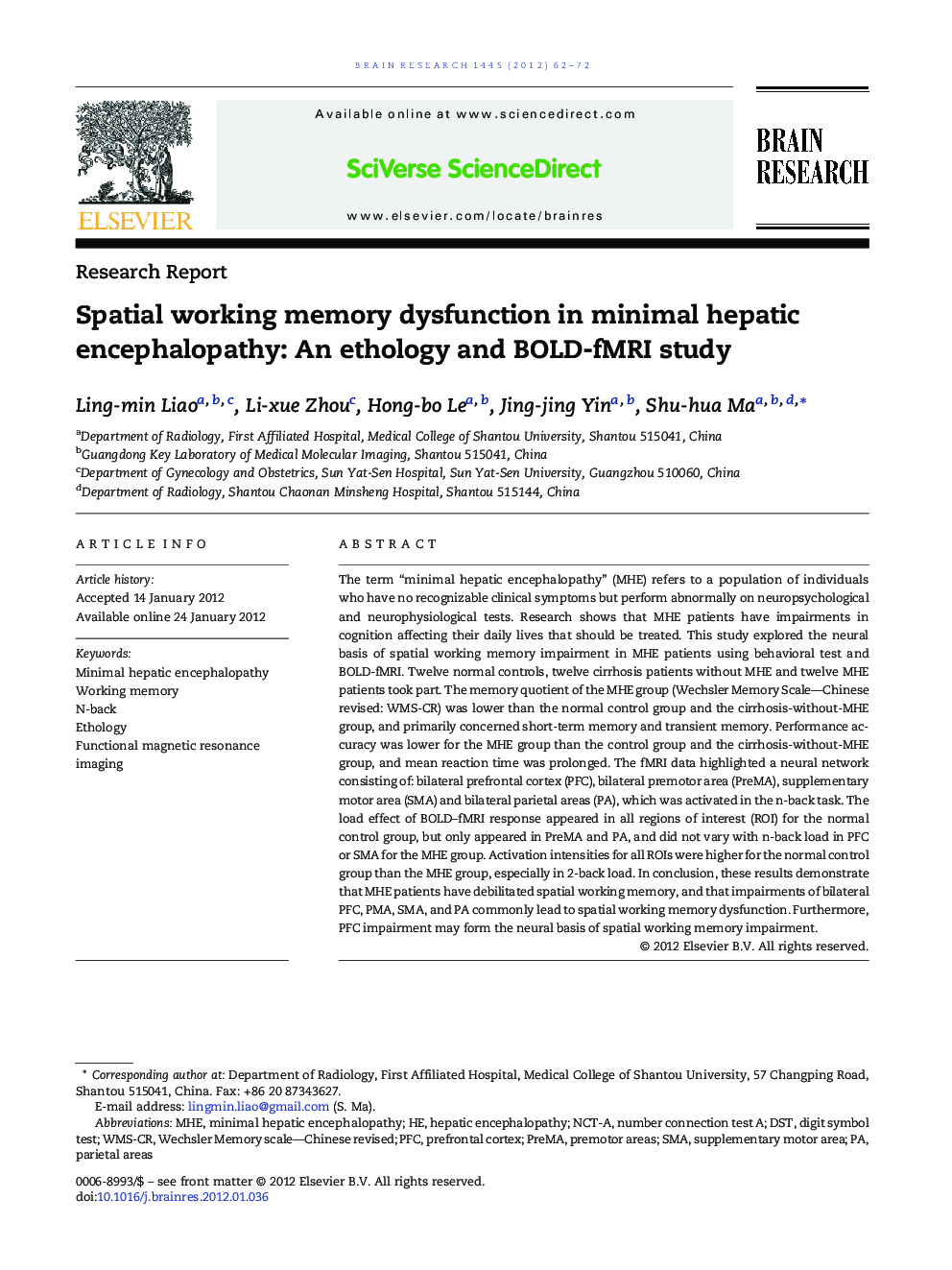| کد مقاله | کد نشریه | سال انتشار | مقاله انگلیسی | نسخه تمام متن |
|---|---|---|---|---|
| 4325376 | 1613994 | 2012 | 11 صفحه PDF | دانلود رایگان |

The term “minimal hepatic encephalopathy” (MHE) refers to a population of individuals who have no recognizable clinical symptoms but perform abnormally on neuropsychological and neurophysiological tests. Research shows that MHE patients have impairments in cognition affecting their daily lives that should be treated. This study explored the neural basis of spatial working memory impairment in MHE patients using behavioral test and BOLD-fMRI. Twelve normal controls, twelve cirrhosis patients without MHE and twelve MHE patients took part. The memory quotient of the MHE group (Wechsler Memory Scale—Chinese revised: WMS-CR) was lower than the normal control group and the cirrhosis-without-MHE group, and primarily concerned short-term memory and transient memory. Performance accuracy was lower for the MHE group than the control group and the cirrhosis-without-MHE group, and mean reaction time was prolonged. The fMRI data highlighted a neural network consisting of: bilateral prefrontal cortex (PFC), bilateral premotor area (PreMA), supplementary motor area (SMA) and bilateral parietal areas (PA), which was activated in the n-back task. The load effect of BOLD–fMRI response appeared in all regions of interest (ROI) for the normal control group, but only appeared in PreMA and PA, and did not vary with n-back load in PFC or SMA for the MHE group. Activation intensities for all ROIs were higher for the normal control group than the MHE group, especially in 2-back load. In conclusion, these results demonstrate that MHE patients have debilitated spatial working memory, and that impairments of bilateral PFC, PMA, SMA, and PA commonly lead to spatial working memory dysfunction. Furthermore, PFC impairment may form the neural basis of spatial working memory impairment.
► Patients with MHE have perform abnormally on neuropsychological and neurophysiological tests.
► We found the short-term and transient memory score of the MHE group in WMS was lower than controls.
► MHE patients also had longer reaction times and lower performance accuracy than controls.
► fMRI showed abnormal activation in multiple cortical regions in MHE patients.
► The result may supply some imaging clues for the etiology mechanism of working memory impairment in MHE patients.
Journal: Brain Research - Volume 1445, 22 March 2012, Pages 62–72